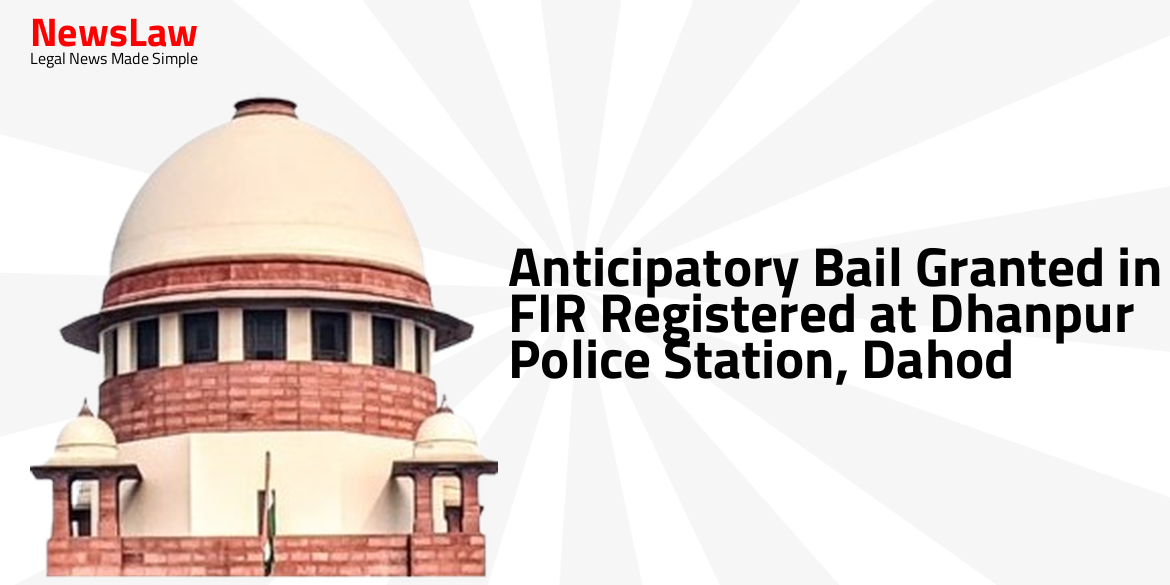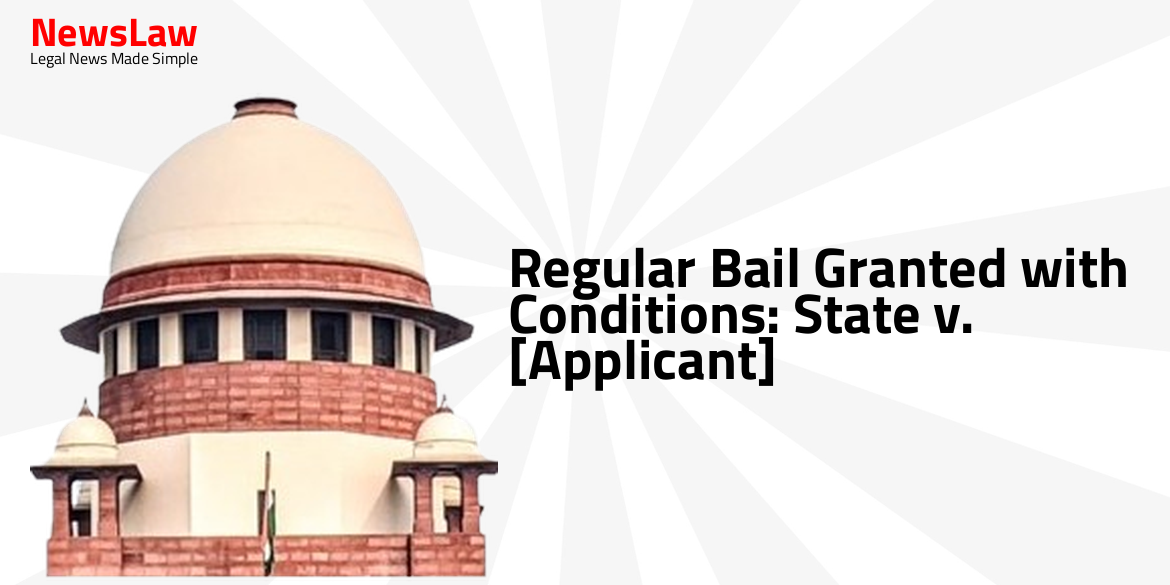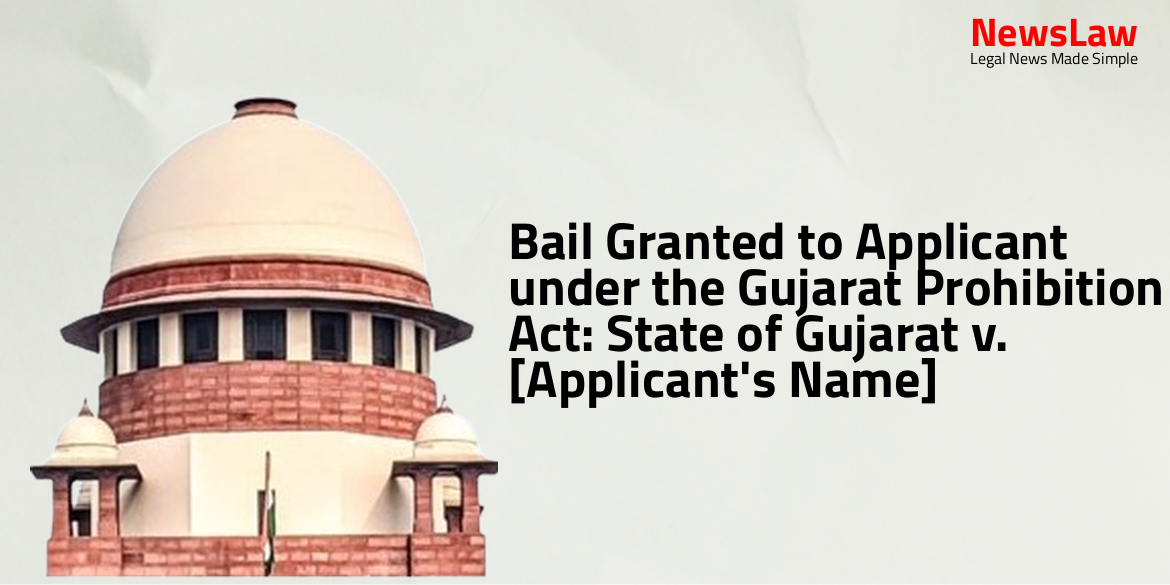In a significant legal ruling, the Gujarat High Court has decided on the quashing of a detention order under the Gujarat Prevention of Anti-Social Activities Act. This case involves a challenge to the legality and validity of the detention order issued against the detenue. Stay informed about the details of this judgment and its implications for preventive detention laws in Gujarat.
Facts
- The present petition challenges the detention order dated 26.10.2023 issued by the detaining authority under the Gujarat Prevention of Anti Social Activities Act, 1985.
- The petitioner, defined as detenue under the Act, is the subject of this detention order.
- The order was passed under section 3(2) of the Act granting the detaining authority powers to detain individuals.
- The petition seeks to challenge the legality and validity of this detention order in accordance with the provisions of the Act.
Arguments
- The advocate for the petitioner argues that the detention order should be quashed as the offenses registered do not fall within the definition of the Act.
- The advocate further argues that the alleged illegal activity does not have any connection with public order and is more of a breach of law and order.
- There is a lack of relevant material connecting the detenue’s activities with a breach of public order aside from witness statements and FIRs.
- The advocate emphasizes that the detenue’s criminal cases did not disrupt the normal functioning of society to the extent of causing a threat to public order.
- Referring to a Supreme Court decision, the advocate states that even if some grounds are valid and others are not, the detention order should be struck down.
- The AGP for the State supports the detention order, citing sufficient evidence of the detenue’s habitual criminal activities.
- The detenue was detained based on two separate offenses at different police stations and was released on bail for both.
- It is noted that the detaining authority’s subjective satisfaction may not be legally sound as the alleged offenses do not qualify as threats to public order as required by the Act.
- The detenue’s actions do not meet the criteria of being a threat to society or causing a disturbance to public order as per section 2(c) of the Act.
Analysis
- The detenue in this case did not have any material on record showing they were acting in a manner dangerous to public order.
- The Supreme Court in Pushker Mukherjee v/s. State of West Bengal (AIR 1970 SC 852) clarified the distinction between ‘law and order’ and ‘public order’.
- The detaining authority must undertake a meaningful exercise and apply the mind to the documents before coming to a conclusion on detention.
- The petitioner had been enlarged by the Court of proper jurisdiction with the option of an alternative remedy of cancellation of bail, which was not pursued by the sponsoring authority.
- The recent decision of the Hon’ble Supreme Court in Shaik Nazeen v/s. State of Telanga and Ors (2023) 9 SCC 633 emphasized that not every act of assault or injury leads to public disorder.
- The detention of the petitioner as the only option is not evident from the grounds of detention, accompanying documents, or any affidavit of the detaining authority.
- A distinction is made between serious disorder directly affecting the community and minor breaches of peace with local significance.
- Mere disturbance of law and order is not sufficient for action under Preventive Detention Act, public order disturbance is necessary.
- The petitioner was arrested for a second offence, released on bail, and then detained the very next day after bail.
- The timing of the order of detention raises questions about the necessity and urgency of the detention.
- Preventive detention law should not be used if there is no nexus with breach of public order
- Simplicitor registration of FIR/s does not justify invoking power under section 3(2) of the Act
- The petition is allowed as the detention order is quashed and set aside
Decision
- Direct service is permitted.
- Rule is made absolute accordingly.
Case Title: ISMAILBHAI JORISNGH MANDOR THRO JORSINGBHAI RAYJIBHAI MANDOD Vs. STATE OF GUJARAT
Case Number: R/SCA/2886/2024



